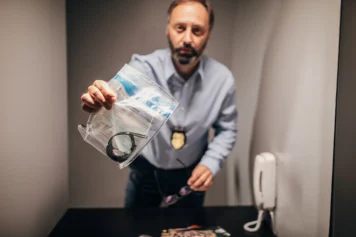As reports continue to surface covering the troubling saga of low home appraisals for Black families, a real estate broker conducted a test to see how his spacious New York home would be appraised both with and without any indication that the house was occupied by a Black family.
Jude Jean Paul Bernard, a financial coach on Instagram, posted a video to his 38,000 followers showing the comparison.
His house was valuated at $4.4 million in January 2022 when he kept Black identifiers like artwork and family photos on display, even when a smaller home on his block was appraised at $4.8 million.

Bernard decided to call in a real estate appraiser last month to assess his home again after “de-Blackifying” his home, as he stated in the video. He removed Black artwork, albums that were featured around his home by Black artists, and even pictures of his child. Bernard also brought in a friend who isn’t Black to act as a representative and show the appraiser his home while he was away.
The results of this most recent appraisal revealed that his home is now worth $4.9 million — $500,000 more in value than it was last year.
“Did my house appreciate $500,000 or did I get $500,000 for deBlackifying?” Bernard asks in the video.
Bernard said he wanted his home re-evaluated because he wondered if he’d been shorted.
Many of his followers and other users who saw Bernard’s video were unsurprised by the difference in appraisal results, noting how often this happens to Black families trying to sell their homes.
“On average Black homes are under appraised by $40k. That equates to over a BILLION dollars of Black wealth lost. Low Home ownership and the biased appraisal process are the largest contributors to the Racial Wealth Gap,” wrote Tiffany Aliche better known as “The Budgetnista,” an award-winning financial educator.
“This is a thing. My realtor is white, ” wrote YouTube comedian DeStorm Power. “When I was ready to sell he came in and whitified my last property and it appraised correctly.”
Another Instagram user wrote: “Thanks for sharing Jude. We didn’t do any of this our last appraisal and we’re pretty surprised at how low it came back. We’ve regretted the decision to not ‘remove our blackness’ from the house ever since. It’s a damn shame.”
Bernard’s case is just one of a number of documented reports that reveal the low home valuations Black families face. In March of this year, a Black couple in California settled a racial discrimination lawsuit after they were lowballed in a home appraisal, even after making major renovations to the home and increasing its square footage.
In 2021, a Black woman’s home valuation jumped by $100,000 when she removed Black identifiers from her home and had a white friend sit in for her during the appraisal.
That same year, a Black Ohio family also went to the same lengths to get two different appraisals completed — one where traces of their racial identity were displayed around the home and another where those traces were removed. Their home value increased by $92,000 in the second appraisal.
Housing discrimination is a rampant injustice that has contributed heavily to the racial wealth disparity in the U.S. In 2018, researchers at Rice University found that racial inequality in home values is greater nowadays than it was 40 years ago, with homes in white neighborhoods appreciating $200,000 more than comparable homes in neighborhoods of color. This increase in inequality is attributed to both historical policies and contemporary practices, like appraisals.
Additionally, appraisals in majority-Black neighborhoods are often impacted by racial bias. A 2018 study by the Brookings Institution revealed that Black-owned homes are undervalued by $48,000 on average. The Journal of Housing Economics published another study that found that property values decrease when Black residents move into a neighborhood while accounting for factors like crime rates and school quality.


